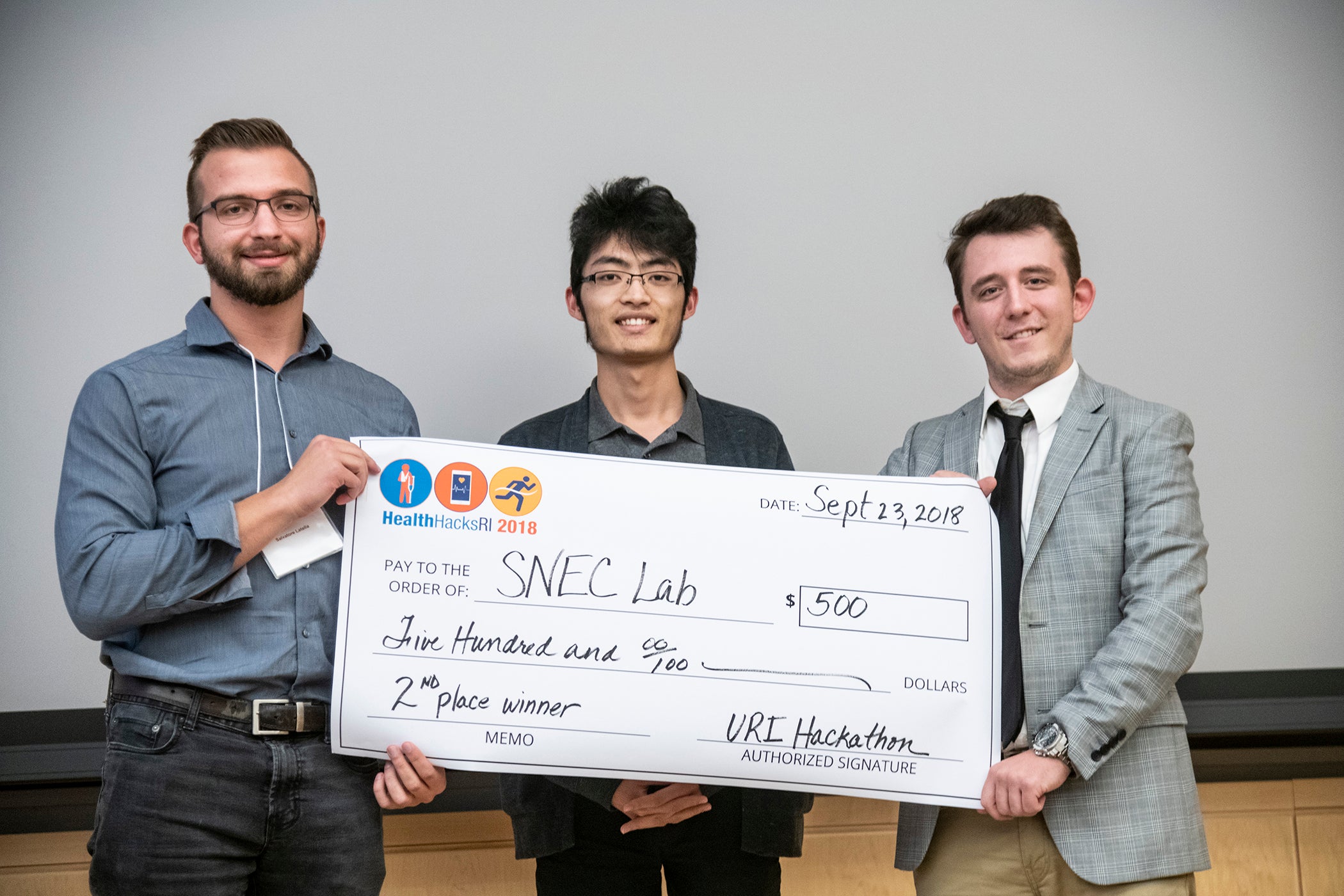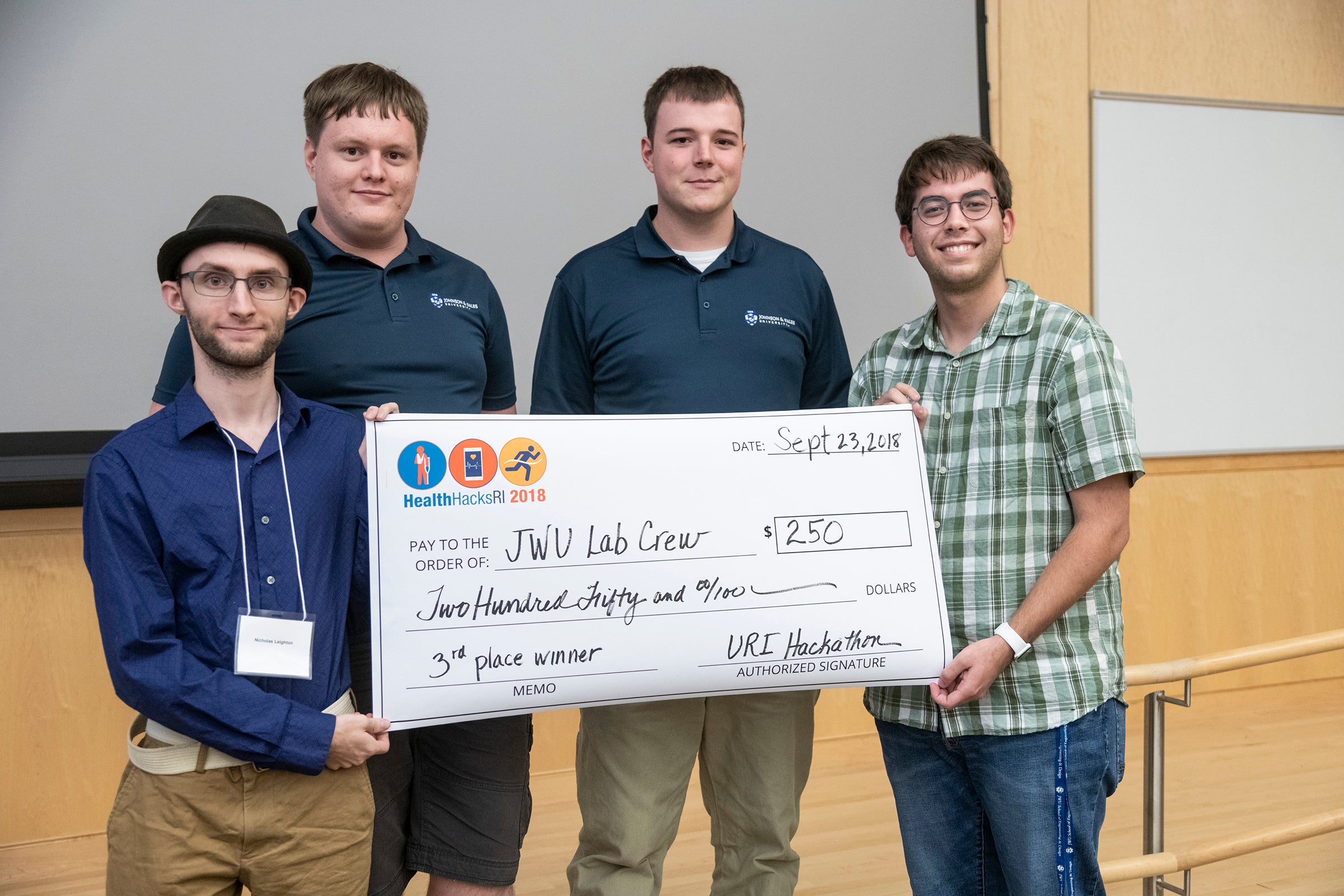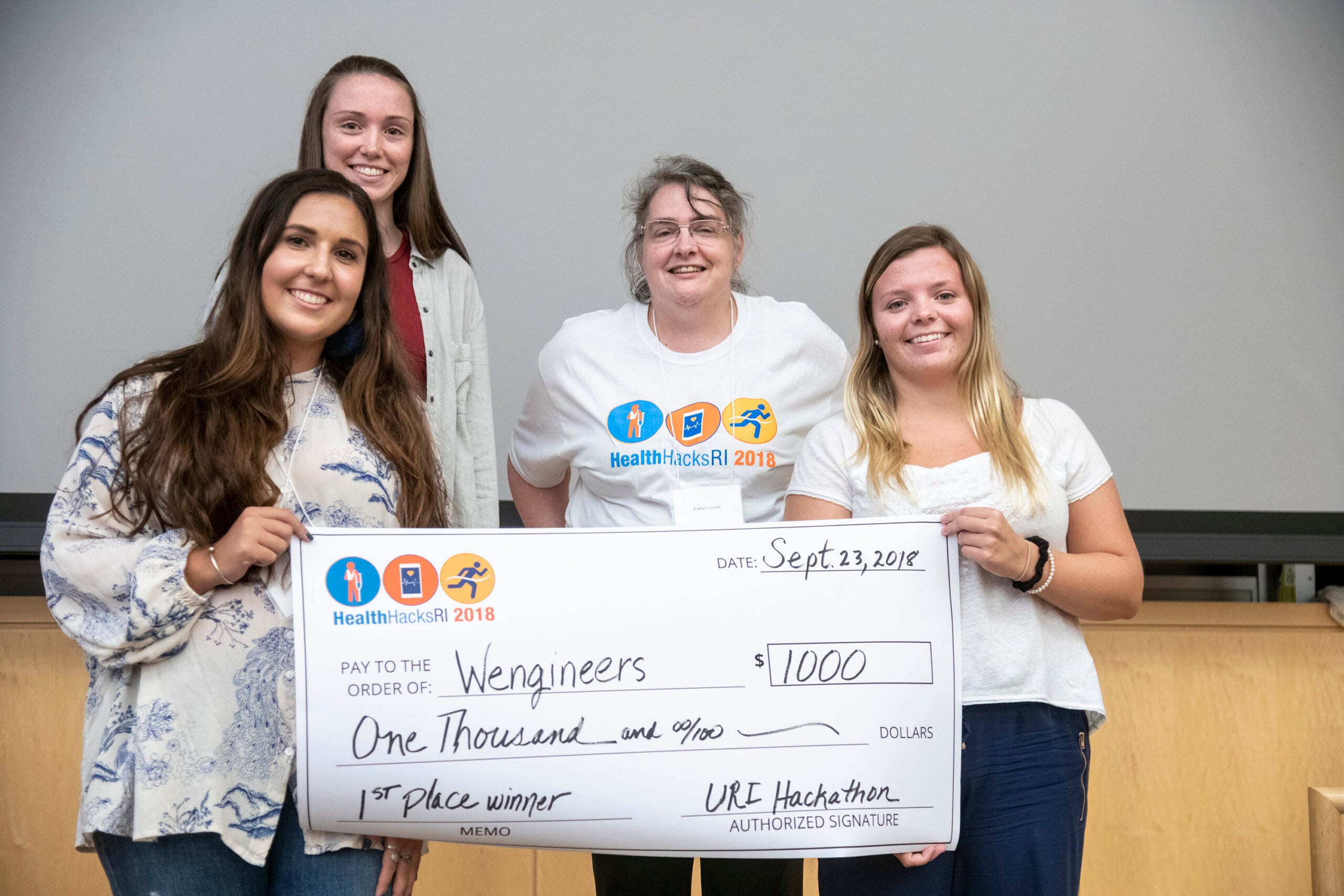KINGSTON, R.I. — September 27, 2018– University of Rhode Island teams captured the top two spots last weekend in the annual HealthHacks RI competition, sponsored by Johnson & Johnson, Delsys, and IEEE, along with URI’s Colleges of Engineering, Nursing, Health Sciences and Business.
Of the 12 teams that competed, the URI team Wengineers took home first prize for a product that would help prevent bed sores among immobile patients.
The competition challenges students from all disciplines to solve practical problems using human-centered design. This year’s focus was on ideas that improve health and mobility among global citizens. Teams had just about 24 hours to brainstorm, design and create their products and pitch them to a team of judges selected from experienced health care and technology executives.

“We wanted to figure out a solution to a problem that people are asking for,” said Lexie Duntzee, Wengineers member and a URI junior biomedical engineering major from Leicester, Massachusetts. She and her team members came up with the idea after hearing from family members and other caregivers of immobile patients.
Duntzee and her teammates, Kate O’Rourke of South Kingstown, Kiera Mantyla of Sparta, New Jersey, and Evelyn Livant of Plainville, Massachusetts developed a system of sensors that detect changes in pressure and notify the caregiver so they can move the individual to prevent sores. They won a cash prize of $1,000.
In second place, Team SNEC Lab from URI created an app that links to a virtual reality headset and a personal heartbeat monitor, like the ones found in FitBits, to help cope with panic attacks.

“It’s hard to remember coping mechanisms for panic attacks in the moment,” said Noah Johnson, a URI graduate student studying computer engineering from Toledo, Ohio. He and his team members, graduate student Salvatore Latella, of Norwalk, Connecticut, and graduate student Xiangqui Kong, an international student from China, won a $500 cash prize for their invention.
In third place was the JWU Lab Crew, a group of undergraduate students from Johnson and Wales University. Patrick Wynn, a junior from Cranston, Nicholas Leighton a junior from Mayo, Maryland, Dennis Collins, a senior from Hauppauge, New York, and Cameron Schimer, a senior from Stewartsville, New Jersey created a biometric flex sensor for physical therapy patients. Linked to an app, the sensors can be applied to different parts of the body to provide instant feedback to the patient to ensure they’re properly executing the exercise.
“The free range to create and do our own thing was great,” said Wynn, a software engineering major. “It really helped teach me good time management.”
Throughout the weekend event, teams met with different mentors from several different disciplines, including those in STEM fields and in business. On the final day of the competition, Sarath Krishnaswamy, the vice president of Digital Engineering at Johnson & Johnson delivered the keynote address.
“Many people focus on competitions like these as avenues for students to learn about pitching, prototyping, and teamwork, “ Krishnaswamy said. “However, it is just as important for us on the corporate side to have exposure to new ideas, new faculty and university capabilities, and especially the students themselves so that we can stay connected to the downstream technology and to our future coworkers.”
Co-organizer Kunal Mankodiya, assistant professor of electrical, computer and bioengineering, said that the competition helps students execute their ideas.
“In higher education we’re always in a traditional classroom mindset where we learn from books and lectures, which is good,” Mankodiya said.
This competition is meant to bring student learning to the next level, he added. “Developing a mindset for innovation and entrepreneurship seeks different platforms and environments, like HealthHacks, where students can form teams and brainstorm for feasible solutions for real-world problems. This also prepares them for a marketplace demanding the skills of teamwork, leadership, and problem solving,” Mankodiya said.
“I am extremely proud of the work done by our URI students who participated in the HealthHacks RI competition last weekend,” said Provost and Vice President for Academic Affairs Donald H. DeHayes. “I was on campus to observe parts of the competition, and I was struck by the high energy, creativity, and passion of all of the student participants. These students represent some of the most creative minds we have to offer, all working collaboratively to improve future health outcomes for people around the world.”
Emma Gauthier, a student writer in the URI Marketing and Communications Department and a journalism major, wrote this press release.

